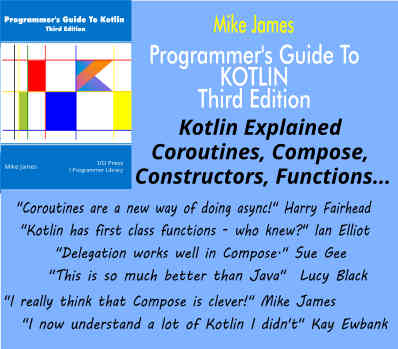| Google Changes Course For Android N |
| Written by Sue Gee |
| Wednesday, 30 December 2015 |
|
In a move that it hasn't officially announced, Google is replacing its implementation of the Java APIs in Android with OpenJDK alternatives. Does this mean that the Oracle v Google lawsuit is over? The lawsuit has been grinding its slow way through the courts. It was initiated in August 2010 with Oracle suing Google citing both patent and copyright infringements. The list of patent infringements was whittled down before the case came to trial in 2012 and all eight of those still asserted by Oracle were unanimously denied. However, the jury deadlocked on Google's fair use of copyright defence, and while Judge Alsup ruled that APIs could not be coryrighted, this ruling was overturned on appeal and the dispute was due to go back to court at some unspecified time in 2016.
Now, by a process of inspecting source code commits on GoogleGit, it appears that Google has adopted the OpenJDK for future versions of Android. VentureBeat has published this statement from a Google spokesperson that tends to confirm this: “As an open-source platform, Android is built upon the collaboration of the open-source community. In our upcoming release of Android, we plan to move Android’s Java language libraries to an OpenJDK-based approach, creating a common code base for developers to build apps and services. Google has long worked with and contributed to the OpenJDK community, and we look forward to making even more contributions to the OpenJDK project in the future.” Florian Mueller, who has followed this case in detail on his FOSS Patents blog notes that moving to the OpenJDK was a option Google could have adopted ahead of lawsuit ever going to court. He writes: "I do remember that Oracle's lawyers released a statement ahead of the 2012 trial in which they basically said that Google had two options for using Java in Android--a proprietary license or using it on open source terms with the obligation to contribute back to the open source community--but, by simply using Java without either kind of license, Google had committed copyright infringement. That was more than three-and-a-half years ago. Why wouldn't Google have taken this step long before, if such a seemingly simple solution to the legal problem as OpenJDK had existed all along?" Mueller goes on to speculate what could happen next in terms of the litigation and whether Google will respect the terms of the GPL in terms of contributing back. There are some technical reasons why adopting the OpenJDK is now more attractive to Google than it has been in the past. The move enables Google to introduce lambda expressions, the feature introduced in Java 8 which OpenJDK supports, in Android. We will have to wait and see whether switching to the OpenJDK makes Android a more robust platform for the future in both the legal and the technical sense.
More InformationGoogle confirms next Android version won’t implement Oracle’s proprietary Java APIs Google switches to open-source license for Java APIs in Android Related ArticlesSupreme Court Refuses To Reconsider API Copyright Decision Judge Rules Oracle's Java APIs Not Copyrightable Oracle v. Google: Jury finds No Patent Infringement Oracle Proposes OpenJDK Mobile Java To be informed about new articles on I Programmer, install the I Programmer Toolbar, subscribe to the RSS feed, follow us on, Twitter, Facebook, Google+ or Linkedin, or sign up for our weekly newsletter.
Comments
or email your comment to: comments@i-programmer.info
|
| Last Updated ( Wednesday, 30 December 2015 ) |



